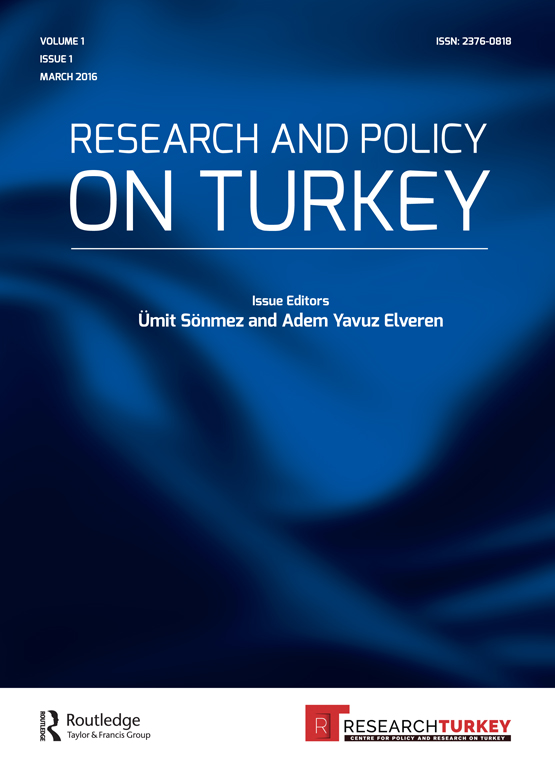Title: “Turkey and Russia: Friends in Need or Partners of Convenience?”
Speaker: Dr. Dimitar Bechev, Visiting Fellow, European Institute, LSE
Date: Thursday, 12 March 2015
Time: 18:30-20:00
Venue: S-2.23, King’s College London (KCL)
Chair: Bill Park, Senior Lecturer, Defence Studies Department, King’s College
We are pleased to announce Centre for Policy and Research on Turkey (Research Turkey)’s public conference entitled “Turkey and Russia: Friends in Need or Partners of Convenience?” in which Dr. Dimitar Bechev, Visiting Fellow, European Institute, LSE will give a talk. This event will take place on Thursday, 12 March 2015 between 6:30p.m. and 8:00p.m. at S-2.23, Lecture Theatre, Strand Campus, King’s College London, WC2R 2LS. Bill Park, Senior Lecturer, Defence Studies Department, King’s College will kindly chair the event.
You may find the short biographies of the speaker, the chair and as well as the talk’s abstract below.
This event is free and open to public but it is a ticketed event that requires pre-registration. A ticket does not guarantee a seat. Please click here for free registration and tickets.
Short Biography of Dr. Dimitar Bechev
Dr. Dimitar Bechev is Visiting Fellow at LSEE (LSE Research on South East Europe), which is part of LSE’s European Institute. In 2010-14, he was Senior Research Fellow and Head of Sofia Office at the European Council on Foreign Relations (ECFR). He has published widely on EU enlargement and the politics and modern history of Turkey and the Balkans, and is a regular contributor to media outlets such as Al Jazeera, Open Democracy and EU Observer. He has been quoted by leading publications such as The Economist, Financial Times and The Wall Street Journal. Dr. Bechev is now working on a book exploring Russia’s role in South East Europe, including the Balkans, Turkey, Greece and Cyprus. He holds a D.Phil in International Relations from the University of Oxford.
Short Biography of Bill Park
Bill Park is Senior Lecturer in the Defence Studies Department, King’s College, London. He is the author of journal articles, book chapters, blog pieces and monographs on a range of Turkish foreign policy issues, including its EU accession prospects, the Cyprus problem, Turkey’s policies towards Northern Iraq, Turkey-US relations, the Fethullah Gulen movement, and the Ergenekon affair. Among his publications are ‘Turkey-KRG relations after the US withdrawal from Iraq: putting the Kurds on the map’, published by the Strategic Studies Institute, US Army War College, in March 2014 (available online). His book, ‘Modern Turkey: People, State and Foreign Policy in a Globalized World’, was published by Routledge in 2011. He is currently writing a book on Turkey’s regional Kurdish predicaments. He serves as a trustee, council member and research committee member for the British Institute at Ankara (BIAA), and is an editorial board member for the journal Mediterranean Politics. He is a frequent visitor to Turkey, has presented at numerous workshops and conferences, and has appeared as a Turkey expert on various UK and overseas media, has given testimony on Turkish issues to the UK Parliament, and is used as a consultant on Turkish issues by various UK government agencies.
Abstract of the Talk
Russia and Turkey have, over the past two decades, developed a very constructive relationship across a wide variety of policy areas. Imperial rivals during much of the Cold War, both countries have since then found common interests in matters of energy, trade and even defence. Besides their growing interdependence, it is hard not to notice the similarities between the two leaders of these countries, especially when it comes to the conspiracy mind-set of blaming dissent at home on foreign meddling. But does this mean that Turkey is fundamentally realigning its foreign policy strategy, away from the EU and towards Russia? And is the EU facing the emergence of an “axis of the excluded”? Not so according to Dimitar Bechev. Dr. Bechev argues that the ties between Russia and Turkey are driven by pragmatism and realpolitik. Contentious issues – such as the war in Syria – may be insulated from areas of overlapping interest, but deeper examination shows the glue holding the two countries together – their energy interdependence – is slowly weakening.



